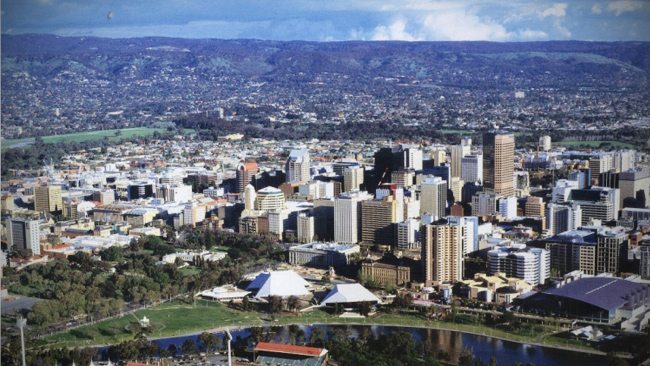
The City of Adelaide has revealed it will power all of its operations and council-owned facilities with 100 per cent renewable energy via a power purchase deal with Flow Power that will kick off in July.
The deal will see Flow Power supply all of the energy needs of South Australia’s capital city council from a mix of locally generated wind and solar power, including from the Clements Gap wind farm in the state’s mid-north, and new solar farms on the Eyre Peninsula and in the south-east.
These new solar projects – Streaky Bay and Coonalpyn Solar Farms – have been acquired by Flow from Tetris Energy, which has been active in the South Australia market, in both developing projects and signing PPAs.
Lord Mayor of Adelaide, Sandy Verschoor, said its PPA with Flow Power was part of the City’s commitment to achieving carbon neutrality, and would slash its operational emissions by around 50 per cent.
On top of that, Verschoor said, the deal would deliver electricity cost savings “in the order of 20 per cent” compared to the City’s most recent energy contract.
“The City of Adelaide is taking climate change seriously and this partnership demonstrates that we are taking real and meaningful action,” she said.
“From the 1 July 2020, if it’s run by the City of Adelaide, it’s being powered by renewable electricity.
“This means that all our corporate and community buildings, council event infrastructure, electric vehicle chargers, barbecues in the Park Lands, water pumps, street lighting and traffic lights – everything that council operates – will be powered by renewable electricity.”
Flow Power co-founder and director of engineering and projects, David Evans, said the partnership with City of Adelaide would play an important role in driving investment in new renewable projects.
“This deal will provide crucial support to new solar projects in the state, creating jobs and helping to bring more renewables into the system,” Evans said.
“We view this as a long-term partnership, which will empower the city to fulfil its ambitious climate commitments and create opportunities to support the energy system.
“It’s evident that South Australia is a world leader in renewable energy. We have seen significant growth since opening our Adelaide office and are committed to driving the uptake of renewable energy in the state for the long-term,” he said.
And while South Australia is undoubtedly a world leader on renewables, the commitment to 100 per cent renewables by the Adelaide City Council marks a first for any local government in the state – putting it slightly behind other states on that count.
Both the Melbourne and Sydney councils have already taken the leap – Sydney in October of last year, although that deal will take effect on July 01 this year, at the same time as Adelaide; and Melbourne since January 2018.
Other local government in those states have also switched to renewables – or at least committed to do so – including the former coal hub of Newcastle in New South Wales, and the City of Moreland in Victoria.
As One Step reported on Monday, Australia’s local governments are, in general, punching above their weight on climate and renewables policy, according to a study by ClimateWorks Australia.
The report, published this week in partnership with Monash Sustainable Development Institute, assessed the climate policies and targets of Australia’s 57 largest local governments – representing more than half of the national population.
The results revealed that nearly 40 per cent of the surveyed local governments had made commitments to reach a zero emissions target by or before 2050 for their community emissions – that is those generated by residents, businesses and visitors.
A further 58 per cent of the assessed councils had set targets to bring their own operational emissions to zero by 2050. Collectively, these 33 councils – four of which were already carbon neutral – cover around one-third of the Australian population.

Sophie is editor of One Step Off The Grid and editor of its sister site, Renew Economy. Sophie has been writing about clean energy for more than a decade.

